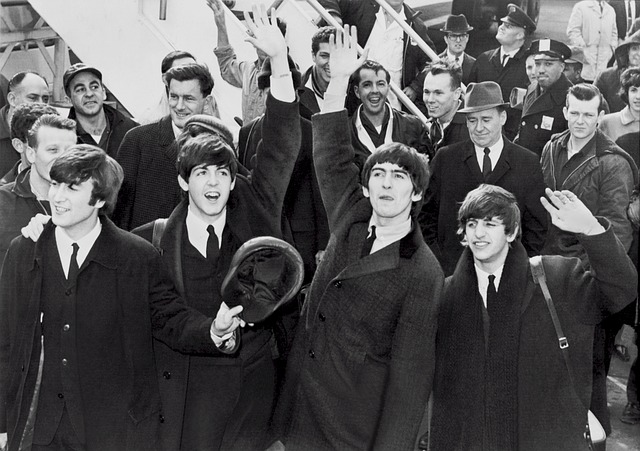 Image via pixabay.com
Image via pixabay.com
Today is the day. No more touring around in your mom's Subaru Outback. The band has finally made enough money to buy a real van. It may be a few years old, but it'll certainly get you to the next gig and then some.
One day, as you're cruising down the highway onward to said gig, you realize how awesome this van is. That is, until someone pulls up beside you. It's another band from across town... but they're in a shiny, newer version of your van. They even have a trailer.
Suddenly, your 2008 Econoline doesn't seem so cool anymore, and you begin to kick yourself for not having the dough for an upgrade. The more you think about it, the more you think that you might be an inferior musician because you couldn't get the nicer van.
After all, if you were better, more people would see you, thus generating more income to have a fancy new van and trailer. Surely that other band on the highway must be better, right?
Though this is just one example, it's all too tempting to make internal comparisons. But comparing yourself to other musicians in this manner is unhealthy; all it does is breed resentment and create unwanted stress.
The dangers of comparisons
We often fall back on comparisons to judge our own worth and value. A lot of this has to do with our culture of idolization. We love our idols dearly and strive to replicate their every move.
Through childhood up to adulthood, we're always looking at high achievers and thinking, "Why can't I be more like that?" As you probably can imagine, this is unhealthy. For one, it leads to some nasty resentment towards that "idol" because he or she is more talented, and you can't come to terms with that.
The fact is, we're all different, and you don't know enough about everyone to make resentful statements. We all have different trajectories when it comes to growth. Perhaps one of your bandmates grew up wealthy and had all the resources to help him or her become a great musician. You, on the other hand, did not, and as a result, you may not be as polished. That's no reason to hate your bandmate – or yourself, for that matter.
In the end, comparisons like these don't get you anywhere. They just harvest stress out of thin air. Ultimately, you'll just end up worrying and missing out on a whole lot. There is, though, a healthy way to compare yourself to others – it just takes a different perspective. By focusing on your own goals and habits, you can save a lot of time and energy that would otherwise be wasted making comparisons.
[4 Practice Routine Tips to Progress Faster on Your Instrument]
Going your own way
Everyone has a natural curiosity that tempts them to follow their interests. Some fail to do this because it may not fit in with their perceived "plan." Others give up because it might look like a big risk.
However, it's long been said that if you want to break the ranks and rise to the top, you need to take intelligent risks. Most people actually know this, but there's something big holding them back.
Fear is probably the number-one reason why many musicians don't take that leap of faith. Fear is also what makes those negative comparisons so detrimental. Furthermore, you're afraid of taking the risk to get better yourself. Getting serious about music requires a clear path and the courage to follow it.
Of course, it's safer to follow in the footsteps of all the other mediocre musicians, because there's an end in sight. Maybe you've even convinced yourself that you're happy with that ending. All the while, you continue to harbor resentment for those at the top.
Ultimately, it's healthy to pursue your own goals at your own pace. Focus on what you can control, and take calculated risks to do so. While success is never guaranteed, you'll at least have a better chance at it with this strategy.
Next up: It's Time to Redefine What 'Making It' in Music Looks Like
Anthony Cerullo is a nomadic freelance writer and keyboard player. In his spare time, he can be found reading, hiking mountains, and lying in hammocks for extended periods of time.


